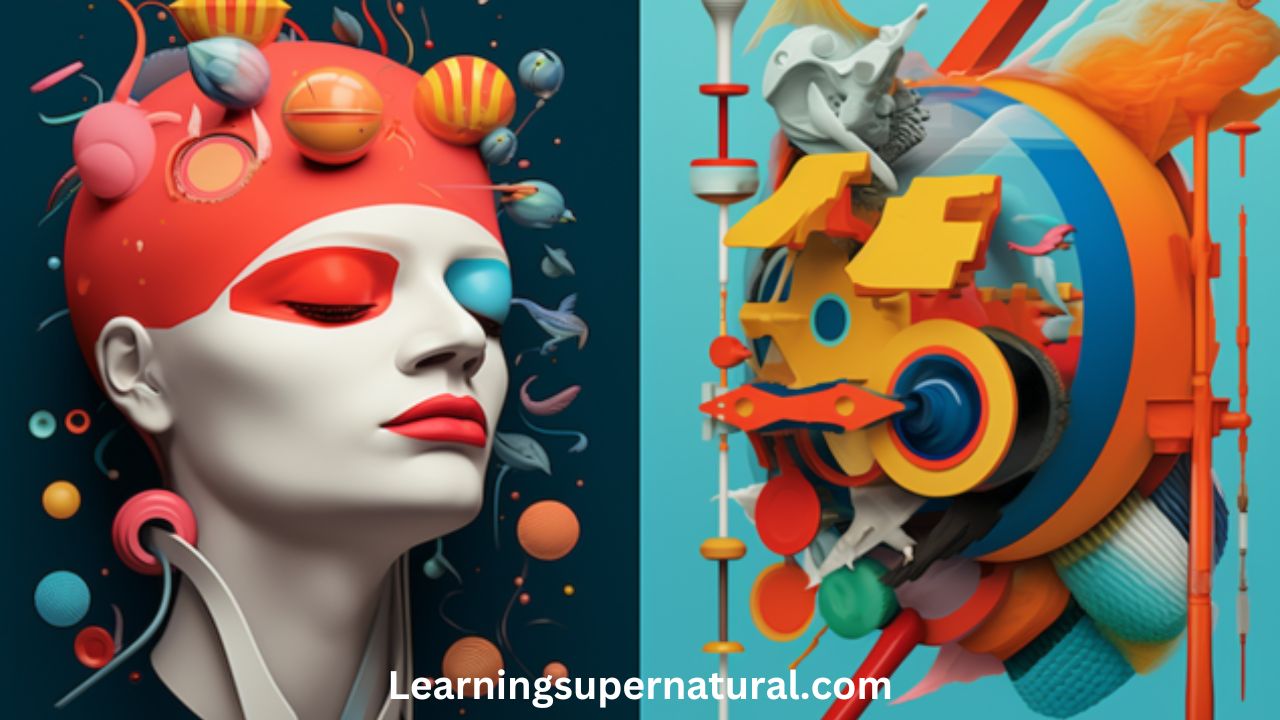Precognition, or the ability to predict future events and outcomes, is a fascinating phenomenon that has been explored in pop culture for decades. From movies to novels to TV shows, precognitive characters have made an impact on audiences around the world.

In this article, we’ll take a look at some of the most iconic examples of precognition in popular culture and what makes them so special.
From Neo’s prophetic dreams in The Matrix trilogy to Melinda May’s visions on Agents of S.H.I.E.L.D., there are many examples of precognition being used as part of a character’s story arc.
We’ll discuss how these works use precognition as both a plot device and as a way to explore themes such as fate and destiny in their stories.
The Matrix Trilogy
They say that life imitates art and there’s no better example of this than The Matrix Trilogy. This sci-fi masterpiece portrays a virtual world ruled by artificial intelligence (AI) in which humans are unknowingly living out their lives as digital slaves.
In the movie, humanity is presented with two paths: either accept the AI-ruled reality or fight to free themselves from its control. It becomes clear that the only way for mankind to break free and create an independent future is through sheer determination and courage – a message that speaks volumes today.
The characters in The Matrix embody our struggles against oppressive forces and show us how even when all hope seems lost, we can still come together and rise up against any adversary. As Neo says at the end of The Matrix Revolutions: “Everything begins with choice” – a powerful statement about taking back one’s freedom despite overwhelming odds.
With these words ringing in our ears, it’s time to turn towards Marvel’s Agents of S.H.I.E.L.D., where humanity finds itself facing another kind of threat…
Agents Of S.H.I.E.L.D.
In the Matrix Trilogy, Neo has the power to bend reality and masterfully control machines with his mind. He is a representation of precognition in pop culture as he possesses the ability to see what will happen before it actually does. This level of awareness grants him mystical powers that are rarely seen in other characters.
Agents of S.H.I.E.L.D., while not having any explicit precognitive abilities, still make use of psychometry techniques to gain an understanding of future events or uncover secrets from the past. For example: Coulson used this technique to extract information from images stored on devices such as Captain America’s shield and artifacts like paintings found in museums or private collections around the world.
Here are five examples of how Agents have utilized these psychometric methods:
- Retrieving memories embedded within objects like orbs or statues
- Unveiling hidden symbols contained inside ancient scrolls
- Discovering patterns or clues written into walls using invisible ink
- Extracting secrets from photographs taken by surveillance cameras
- Revealing encrypted messages sent through emails
The combination of both traditional investigation tactics along with their unique skills makes them formidable foes against enemies who possess knowledge beyond our own comprehension.
Although they cannot predict exactly when something will occur, they can analyze data and draw meaningful conclusions about what could be coming next which leads us perfectly into a discussion about Minority Report…
Minority Report
Philip K. Dick’s novel, ‘The Minority Report’, was the inspiration for the movie.
It focuses on a pre-crime system that can predict and prevent crime before it happens.
Philip K. Dick’s Inspiration
Philip K. Dick’s inspiration for his short story, ‘The Minority Report’, was rooted in his fascination with time travel and alternate realities.
He was deeply interested in the idea of being able to predict the future – a concept that has been popularized by numerous science fiction stories since its conception.
In particular, he explored how precognition could be used to shape society and prevent crime before it even occurred.
The moral implications of such technology have been heavily debated throughout literature, film and television over the decades, making it an iconic example of pop culture’s exploration into these concepts.
It will undoubtedly continue to captivate audiences as long as there is an interest in the potentials and consequences of manipulating time and space.
Precrime System
The idea of a ‘Precrime System’ was made popular by Philip K. Dick’s short story, ‘Minority Report’. This system is based on predictive analytics and preemptive justice, allowing the police to arrest criminals before they even commit their crime.
It has been heavily debated in both media and academic circles due to its moral implications; if it were ever implemented, would civil rights be infringed upon? Despite these questions, it remains an intriguing concept for many.
We can only imagine what society could look like with such a technology in place.
The Omen
Coincidentally, this topic of precognition in pop culture brings us to the 1976 classic horror film The Omen.
This story follows a young boy whose parents slowly come to realize that he is no ordinary child: He has been possessed by an ancient force with malignant intentions and occult symbolism.
As they investigate further into his past, it becomes apparent that their son is destined for destruction and chaos – foreshadowed by such prophetic dreams as one of a jackal hunting down its prey.
His father’s attempts to protect him only lead them deeper into an abyss of evil forces and deathly omens.
In fact, these dark powers are so deeply rooted within their lives that even if they attempt to flee from them, there will be no escape; the consequences have already begun when the movie starts.
With each new day comes another portent of what is yet to come – culminating in a climax filled with dread and terror.
Moving on then… Harry Potter was released over two decades later but capitalizes on similar themes found in The Omen – namely those surrounding prophecy and fate.
Harry Potter
Having looked at the Omen, it is now time to turn our attention towards a much more lighthearted example of precognition in pop culture—Harry Potter.
J.K Rowling’s beloved series follows the titular character on his journey from an orphaned boy to a powerful wizard and master of prophecy power.
For many young readers, Harry Potter was their first taste of magic wands and spells, which made them fall in love with fantasy fiction.
The world that Rowling has created is filled with so much detail that it feels like a real place, full of characters who grapple with moral choices and face relevant issues.
The plot revolves around prophecies that are made by various seers throughout the story, most prominently Sybil Trelawney.
These prophecies provide direction for characters and help shape the narrative arc into one of epic proportions.
It makes us ponder if it’s possible that someone can have knowledge about what will happen before it actually comes true or not?
Ultimately, these questions make Harry Potter such an iconic piece of literature as well as popular culture today.
Frequently Asked Questions [FAQs]
Is Precognition Real?
This is a question that has been asked by many, and the answer may depend on who you ask.
There are those that believe in psychic dreams, intuitive insights, and other forms of premonitions or visions of things to come.
Others may be more skeptical, yet unable to discount personal experiences they have had with seemingly supernatural events.
Whatever one’s beliefs may be, it is undeniable that this phenomenon exists in some form or another across cultures and throughout history.

Are There Any Scientific Studies On Precognition?
Astoundingly, there have been a plethora of scientific studies conducted on the realm of precognition.
From telepathy implications to dream analysis, researchers have spent countless hours delving into this seemingly supernatural phenomenon – pushing the limits of our understanding beyond its wildest dreams.
While some may be skeptical that such an extraordinary topic can be studied in a laboratory setting, these daring experiments have yielded amazing insights and left us with far more questions than answers.
How Can I Tell If I Have Precognitive Abilities?
Have you ever thought that you may possess precognitive abilities?
If so, then it is possible to develop these powers.
Lucid dreaming can be a great tool for exploring your subconscious and discovering any latent psychic energies.
Other methods of testing yourself include meditation, relaxation techniques, or even keeping track of recurring dreams or déjà vu episodes.
Ultimately though, the best way to test if you have precognitive capabilities is through practice and experimentation with different exercises.
Are There Any Risks Associated With Precognition?
Are there any risks associated with precognition?
Absolutely! It is important to understand the differences between clairvoyance and precognition, as well as potential dangers of predictive dreams.
Precognition can be a highly unpredictable ability that could have unexpected consequences if misused or misunderstood. Those who are just discovering their own powers should take proper precautions in order to minimize risk when exploring this fascinating world of psychic abilities.
Are There Any Ethical Considerations With Precognition?
When discussing the ethical considerations of precognition, it’s important to consider intuitive ethics and spiritual guidance.
This is because precognition can be seen as a form of knowing that goes beyond our normal senses.
It may not always fit into traditional moral systems or codes, so having an understanding of intuition and spiritual guidance can help in making ethical decisions when utilizing this capability.
Conclusion
We can’t be sure if precognition is real or not, but it’s certainly fascinating to explore its potential through pop culture.
It appears in a number of iconic examples that have captured the public imagination and provide us with some lessons about our own abilities.
We’d all love to possess these superpowers for ourselves, but we should be aware that there may be risks associated with them—and ethical considerations too!
So while having precognitive powers might seem like an exciting prospect, it’s important to remember that they come with responsibilities as well.




